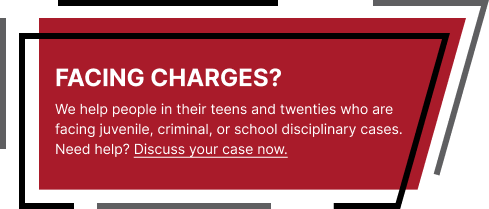

Concerned parents understandably have a lot of questions after their child has been arrested. For our firm, many of the questions revolve around Miranda rights. Parents want to know whether their child’s rights were communicated properly, whether their child knew that they were being detained, or whether a minor can fully understand what Miranda rights are. If you believe that your child’s Miranda rights were violated, you should contact us as soon as you can here.
Even if your child confessed to something after being detained and read their Miranda rights, an experienced attorney can examine the hard facts surrounding the case to see if your child’s rights were violated. It’s more common than you think. Our diligence in examining every detail can lead to crucial evidence being omitted due to violations. Now, let’s examine what Miranda rights are.
Police are required to follow specific procedures during interrogations, and those rules apply to any adult or juvenile that they have in custody. One of those requirements is to read someone their Miranda rights. The officers are basically reminding them of their rights under the 5th and 6th Amendments to the U.S. Constitution. You’ve probably heard some form of it on TV. It usually goes something like this:
“You have the right to remain silent. Anything you say can and will be used against you in a court of law. You have the right to an attorney. If you cannot afford an attorney, one will be provided to you at no cost to yourself.”
That’s not exactly how young people speak, and it’s reasonable to expect that your child either was not read their rights properly or did not comprehend what they were doing by waiving their rights and speaking with police in the first place.
Georgia courts understand that children are at greater risk of a coerced confession, and they take nine factors into consideration to determine if a juvenile knew that they were waiving their constitutional rights.
It’s important to note that Miranda violations do not automatically mean charges are dropped, but an experienced attorney can take all of the evidence into consideration to make a compelling argument as to why charges should be dropped. Sometimes when evidence, like confessions, are ruled inadmissible, the case falls apart.
School resource officers (SROs) are a common part of education today. If your child’s confession or interrogation happened at school, determining the SRO’s level of involvement and whether or not they recited the Miranda rights can be crucial to having evidence thrown out.
This is because SROs in Georgia are generally full-time police officers employed by a local department, not part of school faculty. Therefore, Georgia courts view them as law enforcement. Even minor details, such as the SRO being present when school officials are questioning your child, can make the difference.
If you believe that your child’s Miranda rights were violated, contact the experienced attorneys at Ghanouni Teen & Young Adult Defense Firm for a Defense Strategy Meeting. If you aren’t ready to schedule your consultation, then click here to download our complimentary ebook 5 Things Not to Do When You’ve Been Charged with a Crime to learn what you need to know to start protecting your future immediately.
Ghanouni Teen & Young Adult Defense Firm 691 John Wesley Dobbs Ave NE unit 225, Atlanta, GA 30312
Ghanouni Teen & Young Adult Defense Firm 2765 S Main St Suite C-2, Kennesaw, GA 30144
Ghanouni Teen & Young Adult Defense Firm 3826 Highlands Parkway SE, Smyrna, GA 30082
Ghanouni Teen & Young Adult Defense Firm 3227 S. Cherokee Lane, Suite 1360, Woodstock, GA 30188